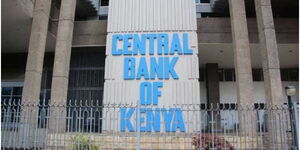Kenya could soon adopt a new education system to replace the current 8-4-4, which has been criticised by experts for not being skill oriented.
A new scheme, recommended by a task-force headed by former Moi University Vice Chancellor Douglas Odhiambo, is set to be reviewed by the Ministry of Education, led by Cabinet Secretary Fred Matiang'i for a possible adoption.
According to the new system (2-6-3-3-3), primary education will be split into two categories, which is Pre-primary and Primary education, taking two and six years respectively.
Students will then advance to Junior Secondary School a stage that would take them three years before joining the Senior Secondary level.
At the senior level, they would spend another three years focusing on their areas of specialization depending on their abilities and interests. For instance, if one prefers Science subjects of the Arts, at this stage is when he/she has the privilege to choose.
After the senior secondary stage, students would go ahead to either enroll at vocational training centres or pursue university education.
The evaluation would be through continuous assessment tests, offered by the respective schools to enable the learners transition by gauging the students skills, competencies and abilities. This model aims at scrapping off the national examinations.
According to John Mugo of Uwezo Kenya: “The system is set to glorify mastery of content over anything else”.
If adopted, the implementation would begin in 2017 affecting class one, four, five and six respectively, to prepare them for Junior High School.
It also means that the Kenya Certificate of Primary Education (KCPE) would end in 2018, while secondary certificate under KCSE would be wiped out in 2021.
The recommendations by Odhiambo's task force partly reflect those tabled in Parliament by Taita-Taveta Women Representative Joyce Lay. In her bill, she is seeking to change the current 8-4-4 system to 6-6-3, with fewer subjects but more robust in learner development.
Read also: Obama's Sister Blames Unemployment On The Poor Education Standards












